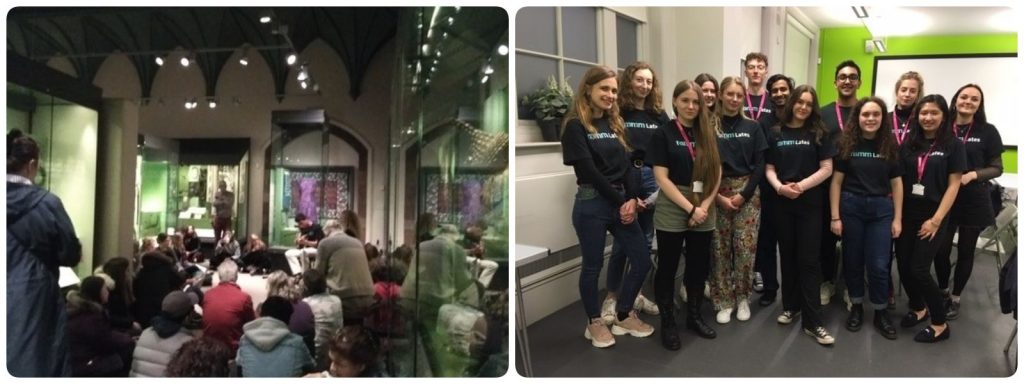On the 5th May at 18:00, Exeter Northcott Theatre will be hosting their ‘The Impact of Women’ event that will explore the stories found in the theatre’s archive collection. The project, which began last Spring was led alongside a team of interns from the University of Exeter who delved into the Northcott’s archive. The event panel will look at the stories that have been uncovered and discuss how the knowledge collected can be used to shape the future culture of Exeter and the South West.
Can you tell me a bit about the history of the Northcott Theatre?
The Northcott opened in 1967 as the first of several important theatres that were built on University campuses in the UK. From the very beginning it was hailed as a ‘theatre for the people of Devon’ and it quickly established itself as a theatre which intended to push boundaries, champion new writing and develop talented creatives. Over the years its many artistic directors have taken the theatre’s identity and mission in different directions – taking on the challenge of what it means to be ‘a theatre for everyone’ and interpreting this in a variety of ways. It has become well known over the years as a training ground for high profile actors such as Dame Diana Rigg, Imelda Staunton, Robert Lindsay, John Nettles and Bon Hoskins, as well as a training ground for theatre technicians and crew. Its annual Christmas Pantomime and summertime Shakespeare in the Gardens are fondly remembered locally and are documented in detail in the archive. The theatre has also lead work with young people through its Young Company, developing creative and artistic skills over several generations.
Has the archival work that has been conducted as part of this project altered or added to that history?
Our work with the collection has enabled us to explore the specific ways that the theatre reinvented itself over the years – and while this was previously looked at as a problem (the theatre having an identity crisis and never quite living up to the ‘theatre for everyone’ mission) we have found that in hindsight this flexibility and ability to change is behind its longevity and ability to withstand and survive some difficult periods in history.
The particular role of regional theatre and how it reflects, engages with and presents work to its community — drawing on local stories and talent in this process — is also gaining new relevance as the current team at the theatre looks to massively change the way it works with and supports its local communities.
How important were the student interns in carrying out this work?
The interns have been central to the archive research. They have identified key themes and trends in the archive and then looked into the detailed records and materials in the collection to uncover the stories behind them. The project focus has been led by them in a very real way: the content relating to theatre productions, projects, actors and theatre staff we are sharing publicly have all been selected and interpreted by our teams of interns over the past year. They have also made the selections of the material we have had digitised by the Digital Humanities department at the University.
Why did you choose Natalie McGrath, Sandhya Dave and Rachel Vowles as your speakers for this event?
Natalie is a real leader in the arts and heritage sector and highly respected locally as the co-founder of Dreadnought South West – an organisation that shares the hidden histories of women and their activism. Natalie is also a wonderful writer and experienced in working with regional theatres, including the Northcott.
Sandhya is a real changemaker in Exeter’s culture through her championing of diverse voices and communities and through her leadership of anti-racist work. Sandhya has worked with the Northcott previously to support better and more meaningful engagement with people with from diverse heritages and works tirelessly to support people locally to be resilient.
Rachel is an education and community engagement expert and well-remembered for her work at the Northcott during 1999-2009 — leading work with hundreds of local young people and developing spectacular large-scale community productions. Rachel is an excellent theatre practitioner with loads of knowledge about the local arts sector and the people that make it work.
What do you hope the event will achieve?
I hope that people will begin to see the archive as a fluid, dynamic resource rather than a dusty collection of boxes. It’s important that history and heritage are opened up to be interpreted by as many people as possible, so we get a fuller picture of the legacies we have been left with today. I hope that by using the archive as inspiration, the panel and event audience will see how history can be used to change and shape what comes next.
Tickets for the event are free and can be purchased via: https://www.exeternorthcott.co.uk/events/the-impact-of-women/
The event is part of a wider project funded by the National Lottery Heritage Fund.
To learn more about the Exeter Northcott Theatre, see: https://www.exeternorthcott.co.uk and follow @ExeterNorthcott on Twitter for updates pertaining to the event.





